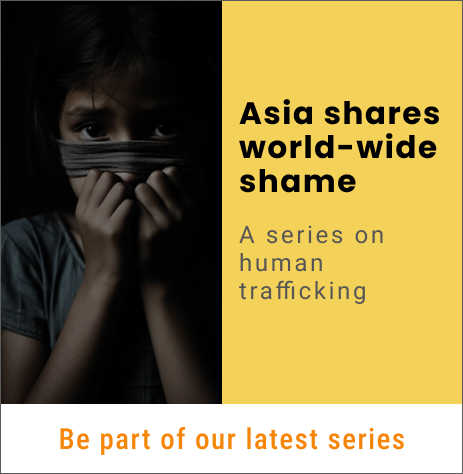A trial court in Japan has imposed a fine on the Unification Church for failing to respond to some of the questions related to its controversial collection of hefty donations from its members.
Tomihiro Tanaka, president of the Unification Church in Japan, was fined 100,000 Yen (around US$660) on March 26 for failing to answer more than 100 of some 500 questions, the Japan Broadcasting Corporation (NHK) reported.
Judge Kenya Suzuki of the Tokyo District Court pointed out that “violation of law,” which is a requirement for the dissolution order, “includes illegal acts under the Civil Code.”

“Torts have been recognized in such cases as the solicitation of donations made by believers,” Suzuki said citing the decisions of 22 other civil court judgments that recognized the responsibility of the church and its followers.
“It appears that illegal acts that violated the property rights and personal rights of many victims were repeatedly committed,” Suzuki added.
The Unification Church had conducted a “suspected” violation of laws and regulations and “harmed the public welfare,” Suzuki noted in his judgment adding that the total amount of damage exceeds 1.5 billion Yen.
Suzuki had imposed the administrative penalty at the request of Japan’s education ministry which had reportedly questioned the group seven times during which it had allegedly refused to answer more than 100 questions, NHK reported.
The penalty imposed is the first such instance in connection with the government’s authority of inquiry.
The church said that it would consider its “future response after confirming the details of the written decision,” NHK reported.
The Unification Church which was formally known as the Family Federation for World Peace and Unification came under heavy government scrutiny and public criticism following the assassination of former Japan Prime Minister Shinzo Abe by Tetsuya Yamagami.
Yamagami shot and killed Abe on July 8, 2022, over his ties to the Unification Church and alleged economic hardships faced by his family due to hefty donations given by his mother to the church which is estimated to be around US$1 million.
The Tokyo District Court is also in the process of hearing a separate plea from the ministry of education requesting the dissolution of the church.
Meanwhile, state officials have lauded the court judgment as proof of the validity of the claims that it has submitted before the court to provide closure to the church’s victims.
Chief Cabinet Secretary Yoshimasa Hayashi said he believed that “the court has recognized the state’s claim” that the church had refused to answer the questions from the government, NHK reported.
Hayashi said that the ministry “will continue to deal appropriately with” the Unification Church-related issues.
Masahito Moriyama, Japan’s minister of education, welcomed the judgment, saying that the court has recognized the ministry’s claim that the right to collect reports and ask questions is legal.
“We will continue to demand that the former Unification Church properly respond to the lawful ‘right to collect reports’ and ask questions,” Moriyama said.
Professor Hajime Tajika of Kinki University, an expert in constitutional law and is an expert on religious corporation law, said the penalty imposed on the church was a boost to the government’s proceedings against it.
“Whether or not it can be said that it [spiritual sales] is being done systematically will be a point to be watched in the future when the request for a dissolution order is heard,” Tajika further added.
A spiritual sale is defined as the selling of goods or services at exorbitant prices promising supernatural benefits such as preventing bad luck or soothing the souls of deceased loved ones by religious organizations.
Credit: Source link




